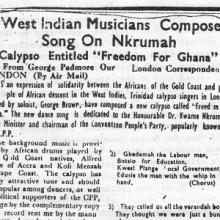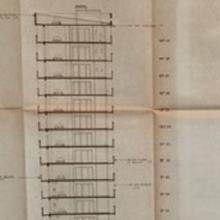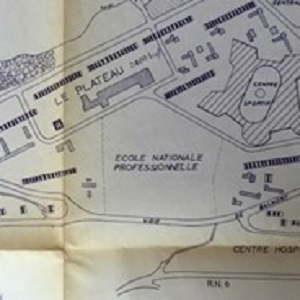Europe

The Bayeux Tapestry
Most likely commissioned by Bishop Odo of Bayeux, the Bayeux Tapestry depicts William the Conqueror’s conquest of England, culmin

Short Teaching Module: Music and Decolonization in the Black Atlantic
The decades after World War II witnessed rapid decolonization of European empires and a dramatic increase in independence movements for colonized peoples.

Lord Kitchener, “Birth of Ghana,” 1957
On March 6, 1957, the Gold Coast Colony declared its independence from Britain and became Ghana, the first West African nation to break from European colonial rule.

Social Capital in World History: Lyon and Pittsburgh as Examples
Lyon, France, and Pittsburgh, Pennsylvania, are connected by the thread of social capital, or people power. This essay situates social capital as an non-financial asset possessed by people who have little wealth, but who use a variety of strategies to facilitate community improvements.

Construction drawing of a social housing high-rise in Duchère
This image shows the standardized framework of a social housing high-rise, dubbed une cité. These manufactured housing units were constructed quickly in French suburbs to accommodate a rapidly growing population.

Social Housing development in France
In addition to La Duchère, other social housing developments in greater Lyon included Les Minguettes in Vénissieux, where 9,200 units for 35,000 residents were constructed between 1966 and 1973, and the 8,300-unit Mas du Taureau, built between 1970 and 1980 (in addition to La Grappinière, with a

Picture of civil rights activist, Djida Tazdaït
One of the realizations of the 1983 March for Equality and Against Racism was the election to the new European Parliament the Lyon-based civil rights activist, Djida Tazdaït (1957- ).

Plans for Social Housing in France
Most of the new housing was constructed on cities’ fringes, or on adjacent farmland just outside the central city, by a quasi-public company known by its French initials SCIC (Société central immobilière de la Caisse des dépôts, or Central Real Estate Company of the Deposits and Consignments Fund

The mayor of Lyon, France drives a bulldozer to initiate construction of social housing
The headline reads, in English, “Aboard a bulldozer, Mr.

SOS Avenir Minguettes President Toumi Djaïdja in Lyon, France
Toumi Djaïdja (third from right) in Lyon, 1983. Source: Le Progrès photo archives.